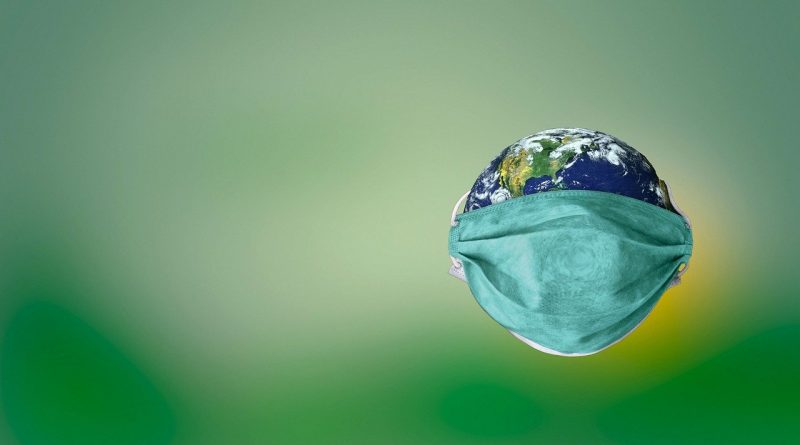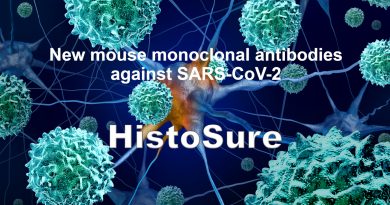Roche’s COVID-19 antibody test gets FDA emergency authorisation
Swiss pharma giant Roche has received Emergency Use Authorisation (EUA) from the FDA for its latest COVID-19 antibody test – Elecsys® Anti-SARS-CoV-2, the company announced on May 3.
Roche’s COVID-19 antibody test has 99.8% accuracy
Roche’s new COVID-19 antibody test has a precision greater than 99.8 percent and a sensitivity of 100 percent (14 days post-PCR confirmation) which will help to evaluate the immune response of tested individuals to the virus. Test results can be ready within 18 minutes.
In March, Roche received emergency authorisation from the FDA for its cobas® SARS-CoV-2 test. The latest emergency Food and Drug Administration (FDA) authorisation is intended to help deploy Roche’s new tests to not only identify if the patient has the COVID-19 disease but also to understand whether the patient has generated antibodies to the SARS-CoV-2 virus.
Building immunity to COVID-19
As the world is looking for a solution to the pandemic, it is of paramount importance to learn more about building immunity to SARS-CoV-2 and this the test can help to confirm the ability of individuals to gain immunity to the virus. As of 24 April 2020, no study has analysed whether the presence of antibodies to the SARS-CoV-2 virus confers immunity to subsequent infection by the virus in humans.
Severin Schwan, CEO Roche Group stated:
”I am in particular pleased about the high specificity and sensitivity of our test, which is crucial to support health care systems around the world with a reliable tool to better manage the COVID-19 health crisis.”
About Roche’s COVID-19 antibody test
Elecsys ® Anti-SARS-CoV-2 is an immunoassay for the qualitative in-vitro identification of antibodies (including IgG) to Severe Acute Respiratory Syndrome Coronavirus 2 (SARS-CoV-2) in human serum and plasma.
The test, which is based on an in-solution double-antigen sandwich-format uses a blood sample to identify antibodies to the COVID-19 disease-causing virus. This could indicate that a subject has already been infected and may have built up immunity to the novel coronavirus.
Based on the analysis of a total of 5272 samples, the Elecsys ® Anti-SARS-CoV-2 assay has an accuracy of 99.81 percent. The test does not display cross-reactivity to the four common cold human coronaviruses, which will minimise the risk of false-positive results associated with the detection of similar antibodies that may be present in the particular test sample.
In samples taken 14 days after a PCR-confirmed infection, Elecsys ® Anti-SARS-CoV-2 detects antibodies with sensitivity 100 percent, Roche revealed.
Depending on the analyzer, these fully automatic devices can deliver SARS-CoV-2 antibody result within 18 minutes for one particular test and have the capacity to operate, with a test rate of up to 300 tests per hour.
Global access to Roche’s COVID-19 antibody tests
The world-leading pharmaceutical company has also started supplying the Elecsys ® Anti-SARS-CoV-2 test to key laboratories worldwide and will expand it’s manufacturing capacity to double-digit millions per month to meet the healthcare systems demand in countries which embrace the CE mark as well as the United States.
Thomas Schinecker, CEO Roche Diagnostics said:
“Our best scientists have worked 24/7 over the last few weeks and months to develop a highly reliable antibody test to help fight this pandemic.” “Roche is committed to helping laboratories deliver fast, accurate, and reliable results to healthcare professionals and their patients.”
With its well-established comprehensive multinational production capabilities, Roche will be able to produce millions of tests every month. Hospitals and reference labs would be able to perform tests on Roche’s cobas e analysers, which are commonly accessible globally.
Local clearance deadlines shall differ to countries with specific regulatory standards. Other country-specific legislation can also apply, such as import specifications, which may dictate when the test will be available locally. Roche intends to work together with the relevant regional representatives to ensure that they support local registration initiatives in a suitable way.
About the anybody testing method
Antibody tests, also known as serology tests, are designed to determine if an individual has gained immunity against a pathogen or not. The human body develops antibodies in response to many different illnesses. In the case of the current COVID-19 pandemic, antibody tests have to be able to specifically detect antibodies against SARS-CoV-2 with no cross-reactivity to other similar coronaviruses, which could generate a false-positive result and therefore indicate potential immunity in error. A false positive result is essentially when a person tests positive when they should have received a negative result. False positives are especially critical in situations where it is unknown how many people in a given community have had COVID-19.
In the wake of the coronavirus crisis, the United Kingdom was one of the first countries to raise the question of whether it is possible to build “herd immunity”, which could be a way to stop the coronavirus pandemic. Two British companies, SureScreen and Mologic are currently testing their own rapid antibody testing devices to evaluate their accuracy.
More about Roche
Roche is a worldwide leader in pharmaceutics and diagnostics with a focus on advancing technology to enhance people’s lives. The integrated advantages of pharmaceuticals and diagnostics under one roof have made Roche the pioneer in customised healthcare – a methodology that aims to serve each patient in the best possible way with the correct treatment.
Roche is the largest pharmaceutical corporation in the world, with distinguished drugs in oncology, immunology, infectious diseases, central nervous system ophthalmology disorders. Roche is also the global leader in in vitro and tissue-based cancer diagnostics and a pioneer in diabetes control.
Established in 1896, Roche seeks to find effective methods for diagnosing, treating and preventing illnesses and makes a massive contribution to society. The company is now collaborating with other key partners to ensure patients optimal access to novel medical therapies.
The World Health Organization Model Lists of Essential Medicines contains more than thirty medications developed by Roche, including life-saving antibiotics, antimalarials, and cancer medicines. In addition, Dow Jones Sustainability Indices (DJSI) has acknowledged Roche as one of the most competitive institutions in the pharmaceuticals industry for the eleventh consecutive year.
The Roche Group with headquarters in Basel, Switzerland, is operating in more than 100 countries and employs approximately 98,000 people worldwide. Roche spent CHF 11.7 billion in R&D in 2019, and reported CHF 61.5 billion in sales.
For further info please see www.roche.com.





